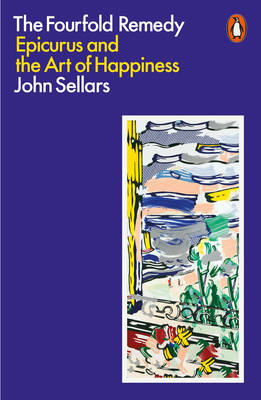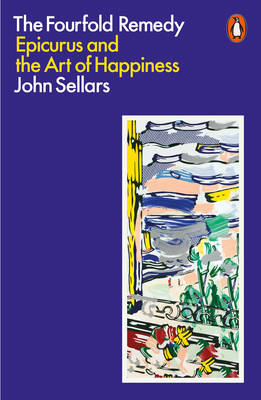
Je cadeautjes zeker op tijd in huis hebben voor de feestdagen? Kom langs in onze winkels en vind het perfecte geschenk!
- Afhalen na 1 uur in een winkel met voorraad
- Gratis thuislevering in België vanaf € 30
- Ruim aanbod met 7 miljoen producten
Je cadeautjes zeker op tijd in huis hebben voor de feestdagen? Kom langs in onze winkels en vind het perfecte geschenk!
- Afhalen na 1 uur in een winkel met voorraad
- Gratis thuislevering in België vanaf € 30
- Ruim aanbod met 7 miljoen producten
Zoeken
€ 11,45
+ 22 punten
Uitvoering
Omschrijving
What do we really need in order to live a happy life? Over two thousand years ago the Greek philosopher Epicurus offered a seemingly simple answer: pleasure. All we really want is pleasure.
Today we tend to associate the word 'Epicurean' with the enjoyment of fine food and wine and decadent self-indulgence. But, as philosopher John Sellars shows, these things are a world away from the vision of a pleasant life developed by Epicurus and his followers, who were more concerned with mental pleasures and avoiding pain. Their goal, in short, was a life of tranquillity.
In vivid, elegant prose, Sellars walks us through the history of Epicureanism from a private garden on the edge of ancient Athens to the streets of ancient Rome, to explore a completely different way of thinking about the pleasures of friendship, our place in the world and the meaning of death. Inspiring and illuminating, The Fourfold Remedy draws on ancient wisdom that feels remarkably relevant today, offering a new way of thinking about what truly matters in our lives.
Today we tend to associate the word 'Epicurean' with the enjoyment of fine food and wine and decadent self-indulgence. But, as philosopher John Sellars shows, these things are a world away from the vision of a pleasant life developed by Epicurus and his followers, who were more concerned with mental pleasures and avoiding pain. Their goal, in short, was a life of tranquillity.
In vivid, elegant prose, Sellars walks us through the history of Epicureanism from a private garden on the edge of ancient Athens to the streets of ancient Rome, to explore a completely different way of thinking about the pleasures of friendship, our place in the world and the meaning of death. Inspiring and illuminating, The Fourfold Remedy draws on ancient wisdom that feels remarkably relevant today, offering a new way of thinking about what truly matters in our lives.
Specificaties
Betrokkenen
- Auteur(s):
- Uitgeverij:
Inhoud
- Aantal bladzijden:
- 96
- Taal:
- Engels
Eigenschappen
- Productcode (EAN):
- 9780141991658
- Verschijningsdatum:
- 30/01/2022
- Uitvoering:
- Paperback
- Afmetingen:
- 129 mm x 198 mm
- Gewicht:
- 80 g

Alleen bij Standaard Boekhandel
+ 22 punten op je klantenkaart van Standaard Boekhandel
Beoordelingen
We publiceren alleen reviews die voldoen aan de voorwaarden voor reviews. Bekijk onze voorwaarden voor reviews.









